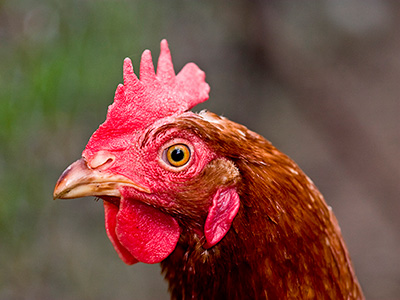An update on Bird Flu
What is bird flu?
Bird flu (highly pathogenic avian influenza H5N8) is a viral disease affecting all types of poultry. It is a notifiable disease which means any suspicion of the disease must be immediately reported to the Animal & Plant Health Agency (APHA) - tel 03459 335577.
There is absolutely no evidence that is causes any disease in humans and poultry is safe to eat, but remember poultry should always be properly cooked!
Why is bird flu an issue at the moment?
Bird flu is currently being carried by migratory wild birds and waterfowl across Europe. Wild birds have caused several outbreaks of bird flu in domesticated and farmed birds in Europe. In an attempt to reduce the risk of this disease entering the UK by wild birds the government has put restrictions in place by making the whole of GB an Avian Influenza Prevention Zone. This will be in force for 30 days.
What action needs to be taken?

Anyone who keeps any type of poultry, or other farmed or captive birds, must make sure their birds are housed or if this is not possible kept separate from wild birds.
If you have a suitable building that the birds can be moved into without causing them stress, or overcrowding or other problems then you should do so.
If this is not possible then sensible precautions to keep them away from wild birds must be taken. For example:
- Keeping food and water supplies inside where wild birds cannot get access and contaminate them
- Ensuring your birds are fed and watered inside where no wild birds can intermingle with your birds
- Setting up a temporary area outside with a net over it to ensure wild birds cannot get access
- And there could be many things that you could do which would be sensible in your own particular set up
It is also important to practice good biosecurity, so do not allow visitors to handle your birds, and keep visitors and others well away from your birds.
Ensure things are kept clean and tidy to reduce the chance of infection.
With the discovery of the first case of Avian flu on a farm in Lincolnshire on 16 December it is now even more important to strictly adhere to these measures to reduce the chance of infection getting into kept birds and poultry.
What are the signs of bird flu?
These may be as simple as reduced feed and water intake. Birds may appear slightly dull. There may be some deaths. In any of these circumstances you must inform your vet or inform APHA by phone on the above number.
Remember bird flu poses no risk to human health.
More information
Further details, including the measures applying in the Avian Influenza Prevention Zone, can be found at www.gov.uk/guidance/avian-influenza-bird-flu and www.gov.scot/avianinfluenza

